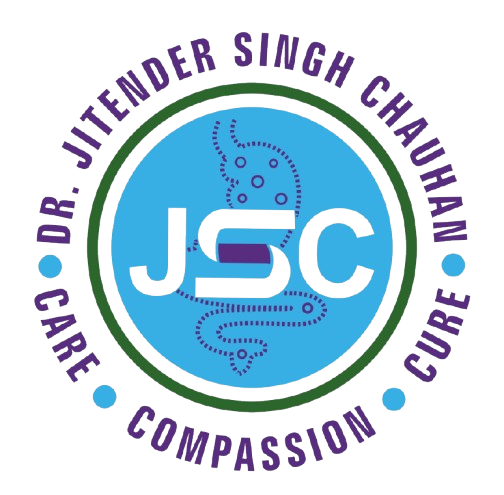Dr. Jitender Singh Chauhan
Best Onco Surgeon in Haryana
This is where Dr. Jitender Singh Chauhan steps in as one of the most trusted Gastro Surgeons and Oncology experts in Haryana, with over 15 years of experience in treating various complex gastrointestinal and oncological conditions. Dr. Jitender Singh Chauhan stands out among other specialists in Haryana due to his extensive training, compassionate care, and dedication to providing the best surgical outcomes for his patients.
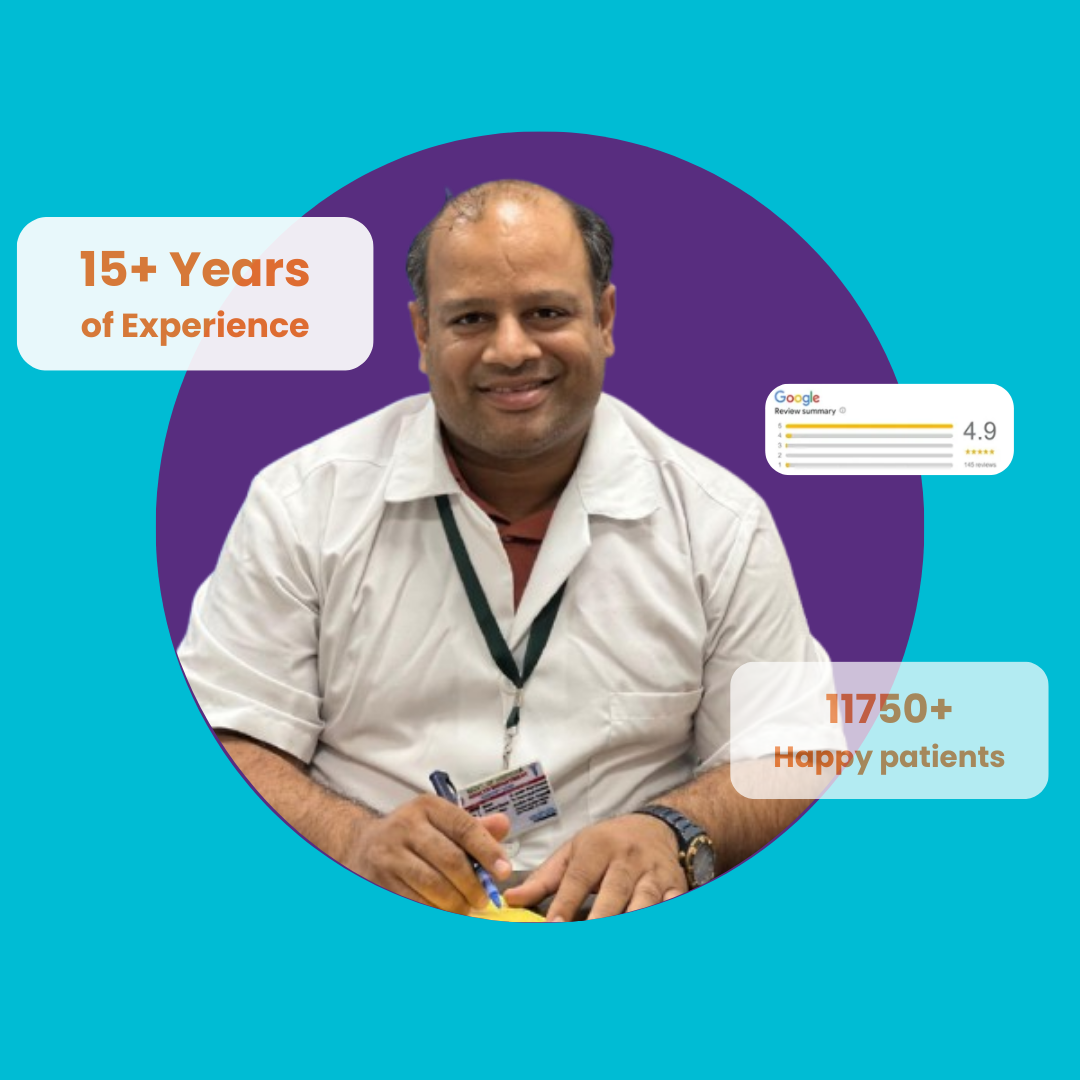
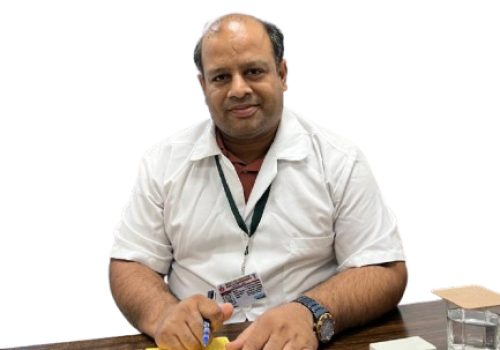
Dr. Jitender Singh Chauhan
Dr Jitender Singh chauhan is the leading liver cancer specialist in India. He has treated hundreds of patients with liver cancers. He has more than 15+ years of experience in treating liver cancer.
Management of liver cancer involves proper diagnosis & early treatment. Diagnosis is performed with Triple phase CT scan & AFP level. The treatment involves surgery, chemotherapy, TACE, TARE or RFA.
Trusted Name
11500+ satisfied patients
Rich Experience
Having 15+ years of experience
Safe Surgical Hands
1000+ successful operations performed
Dr. Jitender Singh Chauhan experience as a colorectal cancer doctor
Dr. Jitender Singh Chauhan, a highly experienced and skilled GI cancer specialist and surgical oncologist, is based in Ambala Cantt, Haryana, India. Known for his exceptional surgical precision and compassionate patient care, Dr. Chauhan has established himself as a leading expert in gastrointestinal cancer surgeries. His expertise spans across treating complex cases involving liver, stomach, pancreas, and colorectal cancers, positioning him as one of the top oncologists in the region.
Dr. Jitender Singh Chauhan is recognized not only as a leading GI cancer specialist in Ambala Cantt, Haryana but also across the state and beyond. Known for his exceptional surgical precision, Dr. Chauhan’s expertise spans a wide array of advanced surgical techniques, tailored to achieve the best possible outcomes for patients with complex gastrointestinal cancers. His commitment to innovation and patient care ensures that his approach is both cutting-edge and minimally invasive.
Dr. Jitender Singh Chauhan’s pioneering contributions in gastrointestinal cancer surgery have established him as a leader in the field, particularly across Haryana and India. His innovative approaches to surgical interventions, combined with his vast expertise in complex GI cancer surgeries, position him as a preferred choice for individuals seeking advanced and compassionate cancer care.
Know about Colon Cancer
Colon cancer is a cancer that affects the large intestine (also known as the colon). Large intestine has several parts i.e. ascending, transverse, descending, sigmoid. Cancer can happen in any of the parts of the large intestine.
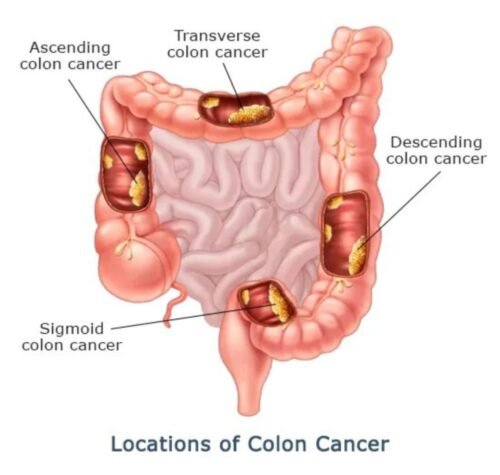
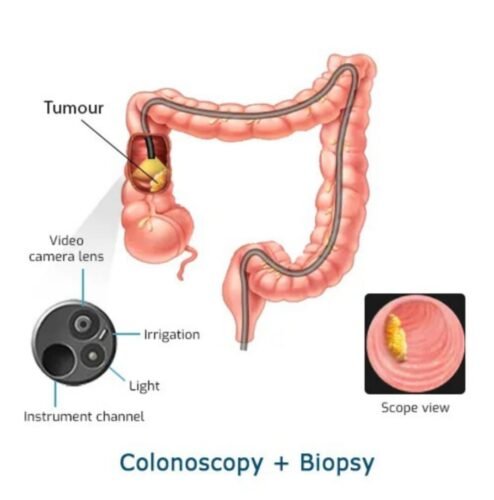
⦿ Age (Risk increases with age, most cases occur after 50)
⦿ Family history (Having a close relative with colon cancer)
⦿ Personal history of polyps or colorectal cancer
⦿ Inherited gene mutations (e.g., Lynch syndrome, FAP)
⦿ Inflammatory bowel disease (e.g., ulcerative colitis, Crohn’s)
⦿ Unhealthy diet and lifestyle (red/processed meats, low fiber, sedentary behavior, obesity, smoking)
⦿ Diabetes and insulin resistance
⦿ Radiation exposure (previous treatment)
⦿ Ethnicity (African Americans at higher risk)
⦿ Environmental factors (chemicals, pollutants)
Symptoms of Colon Cancer:
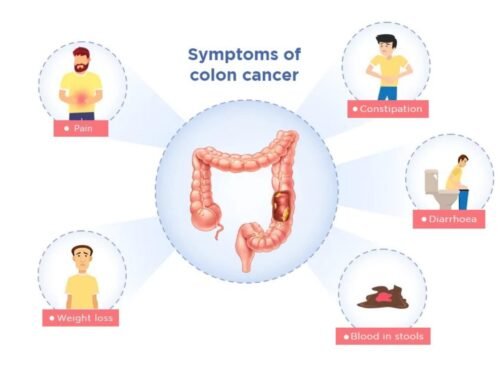
⦿ Persistent change in bowel habits
⦿ Blood in the stool
⦿ Abdominal pain or cramping
⦿ Unexplained weight loss
⦿ Fatigue or weakness
⦿ Iron deficiency anemia
⦿ Narrow stools
⦿ Constipation or diarrhea that lasts for more than a few days
⦿ Feeling that the bowel does not completely empty
⦿ Rectal bleeding or dark-colored stool.
Stages of colon cancer are as follows:
⦿ Stage 0: Cancer is in situ, confined to the innermost layer of the colon.
⦿ Stage I: Cancer has spread to the deeper layers of the colon wall.
⦿ Stage II: Cancer has penetrated through the colon wall and may affect nearby tissues.
⦿ Stage III: Cancer has spread to nearby lymph nodes but not to distant sites.
⦿ Stage IV: Cancer has metastasized to distant organs or tissues.
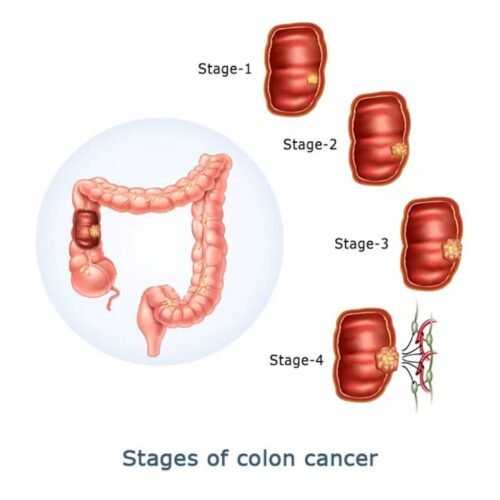
Staging for colon cancer are as follows:
CT scan: A CT scan, or computed tomography scan, is a non-invasive imaging test that provides detailed cross-sectional images of the body, including the colon. It helps in detecting abnormalities and evaluating the extent of colon cancer.
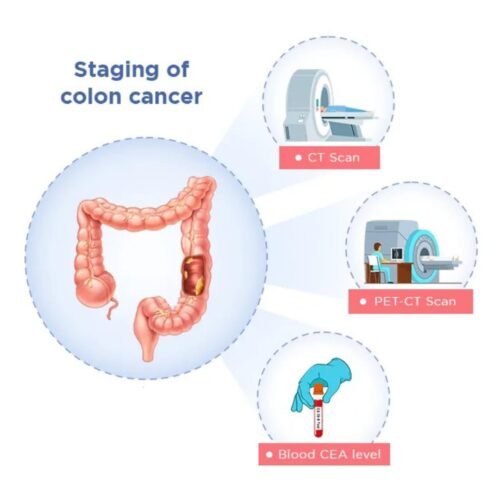
Treatment options for colon cancer include:
⦿ Surgery: Removal of the cancerous portion of the colon.
⦿ Chemotherapy: Medications to kill cancer cells throughout the body.
⦿ Radiation therapy: High-energy beams to destroy cancer cells.
⦿ Targeted therapy: Drugs that specifically target cancer cells.
⦿ Immunotherapy: Boosting the body’s immune system to fight cancer cells.
⦿ Palliative care: Focuses on symptom management and improving quality of life.
Treatment Methods
When it comes to treating colon cancer, there are several effective options available. The choice of treatment depends on the stage of the cancer and the individual’s overall health. Here are the primary treatment modalities for colon cancer:
Surgery is often the first-line treatment for colon cancer. It involves the removal of the tumor and nearby lymph nodes. The extent of surgery depends on the stage and location of the cancer.
Chemotherapy uses drugs to kill cancer cells or prevent their growth. It can be administered before or after surgery to eliminate any remaining cancer cells or reduce the risk of recurrence.
Radiation therapy utilizes high-energy radiation to destroy cancer cells. It may be used before or after surgery, or in cases where surgery is not possible. Advanced techniques minimize side effects.
Targeted therapies target specific molecules or pathways involved in cancer growth. These medications can be used in combination with chemotherapy and have shown benefits in advanced stages of colon cancer.
Immunotherapy boosts the body’s immune system to fight cancer cells. Immune checkpoint inhibitors have shown promise in treating advanced colon cancer with specific genetic characteristics.
Types of Robotic surgeries to treat colon cancer
Robotic surgery has revolutionized the treatment of colon cancer, providing minimally invasive options with improved outcomes. Here are the main types of robotic surgeries used for colon cancer treatment
1
Robotic-Assisted Colectomy: Removal of the affected part of the colon using robotic arms and instruments controlled by the surgeon. Offers greater precision, smaller incisions, and faster recovery.
2
Robotic Total Colectomy: Complete removal of the colon using robotic assistance. Useful for extensive colon cancer cases or certain hereditary conditions.
3
Robotic Proctectomy: Removal of the rectum and nearby lymph nodes. Robotic surgery enables enhanced access and precision in the confined pelvic area.
4
Robotic Lymph Node Dissection: Precise removal and examination of lymph nodes to determine the spread of cancer cells. Robotic surgery aids in thorough and accurate lymph node dissections.
Why Choose Dr. Jitender Singh Chauhan?
Dr. Jitender Singh Chauhan, a highly experienced and skilled GI cancer specialist and surgical oncologist, is based in Ambala Cantt, Haryana, India. Known for his exceptional surgical precision and compassionate patient care, Dr. Chauhan has established himself as a leading expert in gastrointestinal cancer surgeries. His expertise spans across treating complex cases involving liver, stomach, pancreas, and colorectal cancers, positioning him as one of the top oncologists in the region.
Dr. Jitender Singh Chauhan, a highly respected onco surgeon in Haryana, leads a dedicated and expert team at his practice. Working alongside experienced medical oncologists, radiation oncologists, and interventional radiologists, Dr. Jitender Singh Chauhan provides comprehensive care for patients dealing with various cancers.
Dr. Jitender Singh Chauhan, a highly esteemed onco surgeon in Haryana, is renowned for his expertise in managing advanced stages of cancer, including the complex treatment of stage 4 cancers. With a focus on gastrointestinal (GI) cancers, Dr. Chauhan’s practice provides a wide range of cancer care services, including chemotherapy and surgical interventions.
Frequently Asked Questions
A colorectal surgeon.
Colon cancer can be cured, especially when detected early and treated promptly. However, the prognosis depends on various factors.
Colon cancer can affect both men and women, usually occurring in individuals over the age of 50. However, it can occur in younger individuals as well.
Maintain a balanced diet with high fiber content, stay hydrated, exercise regularly, avoid smoking and excessive alcohol consumption, and undergo regular screenings colonoscopy.
Foods rich in fiber such as fruits, vegetables, whole grains, legumes, and nuts are beneficial for colon health. Additionally, staying hydrated and limiting processed foods is important.
Robotic surgery for colon cancer has high success rates, but the specific success rate depends on various factors, including the stage and type of colon cancer, the skill of the surgeon, and the patient’s overall health.
Robotic surgery is minimally invasive, resulting in smaller incisions and reduced trauma. This often leads to faster healing, shorter hospital stays, and a quicker return to normal activities compared to traditional open surgeries.
Surgery is often a crucial component in treating colon cancer. Depending on the stage and extent of the cancer, surgery can be curative by removing the tumor and surrounding tissue. However, the prognosis can vary, and additional treatments may be necessary based on individual circumstances.
